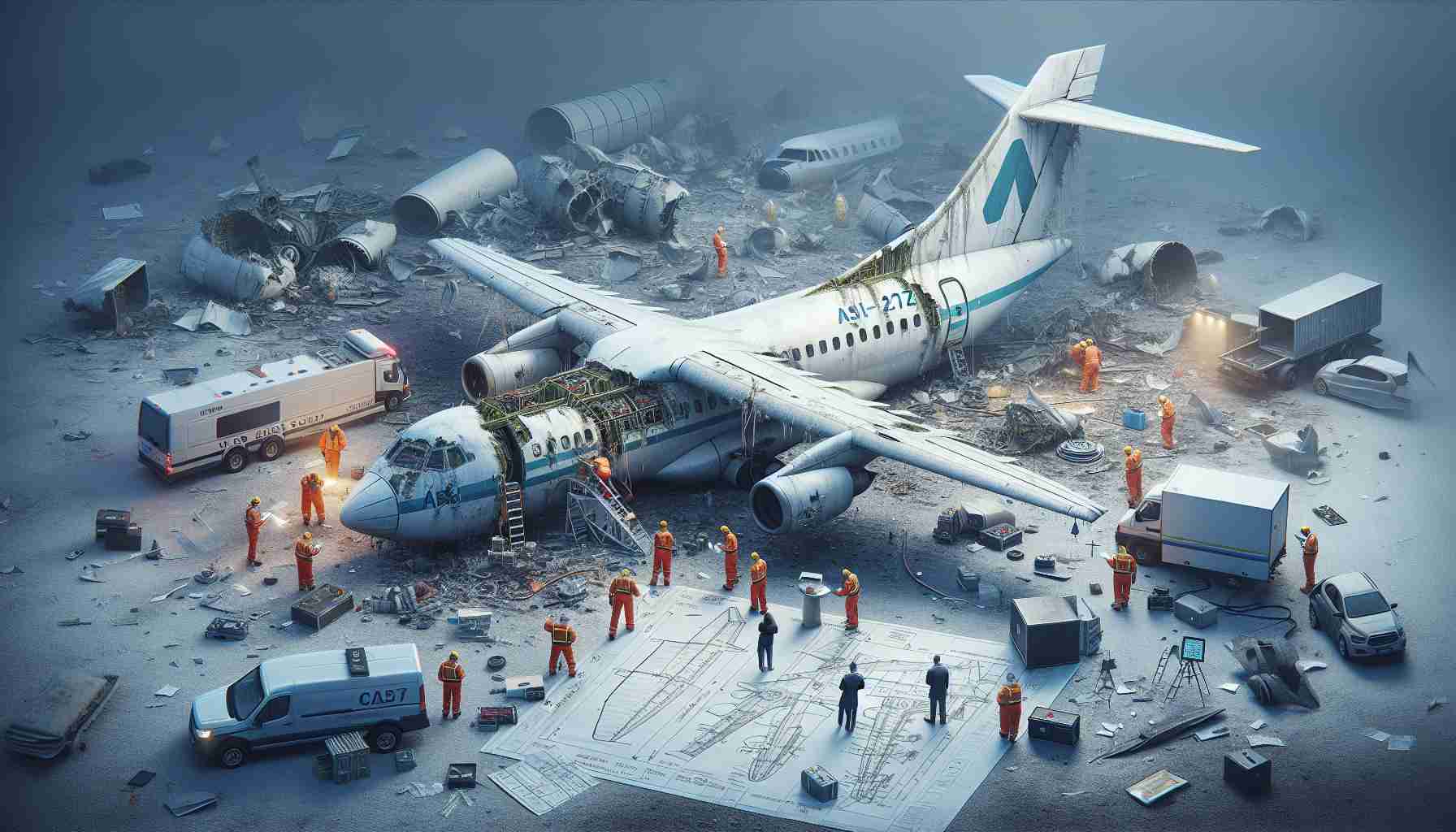A recent investigation into the crash of an ATR-72 aircraft in Brazil has raised concerns about the potential failure of the plane’s deicing system as a contributing factor to the tragic accident that claimed the lives of all 62 people on board. The preliminary report revealed that the co-pilot had reported encountering “a lot of icing” during the flight before the crash occurred in Vinhedo, Sao Paulo.
The report indicated that the aircraft’s icing detectors were activated, leading investigators to suspect that the deicing system may have malfunctioned. While experts agree that ice buildup could have played a role in the crash, they emphasized that accidents are often complex events with multiple factors at play.
The ATR-72 aircraft involved in the incident has a history of ice buildup issues, with past incidents in Norway and Cuba highlighting the dangers posed by such conditions. The current investigation, led by the Centre for Research and Prevention of Aeronautical Accidents (Cenipa), is expected to continue for over a year to determine the exact cause of the crash.
Despite the tragic outcome, the investigation serves as a reminder of the importance of aviation safety measures and the need for thorough examinations of all potential contributing factors in such incidents. The safety of passengers and crew remains a top priority in the aviation industry, with efforts focused on preventing similar tragedies from occurring in the future.
An in-depth investigation into the ATR-72 crash in Brazil continues to uncover crucial details regarding the potential failure of the deicing system, shedding light on significant questions and challenges in aviation safety.
One key question arising from the investigation is whether the deicing system was properly maintained and functioning prior to the flight. Maintenance records and inspection protocols will be scrutinized to determine if any lapses or deficiencies contributed to the system failure.
Another crucial aspect being explored is the training and procedures in place for handling icing conditions during flights. Investigators are examining whether the flight crew received adequate training on how to manage and mitigate ice buildup, especially considering the history of ice-related incidents involving the ATR-72 aircraft model.
The investigation also delves into the design and performance of the deicing system itself, seeking to identify any design flaws or vulnerabilities that may have compromised its effectiveness. Understanding the system’s limitations and performance under various conditions is essential for improving safety protocols and preventing similar incidents in the future.
Key challenges in the investigation revolve around piecing together the sequence of events leading up to the crash and determining the precise role played by the deicing system failure. The complexity of aviation accidents often involves interconnected factors that require meticulous analysis and expertise to unravel.
Controversies may arise in discussions surrounding regulatory oversight of deicing systems and whether existing standards are adequate to address evolving threats posed by ice accumulation. Balancing the need for stringent regulations with practical considerations for aircraft operators is a delicate matter that regulators and industry stakeholders must navigate.
Advantages of a comprehensive investigation include gaining insights that can inform safety enhancements, training improvements, and regulatory updates to mitigate risks associated with ice-related incidents. Lessons learned from this tragedy can lead to enhanced awareness and preparedness within the aviation community.
On the other hand, a prolonged investigation period may prolong uncertainty for the families of the victims and industry stakeholders awaiting findings and recommendations for preventive actions. Balancing thoroughness with timeliness is crucial for delivering actionable outcomes from the investigation.
For further insights on aviation safety and accident investigations, visit International Civil Aviation Organization. This reputable organization plays a vital role in promoting global aviation safety standards and facilitating cooperation among member states to prevent accidents and enhance air travel security.


